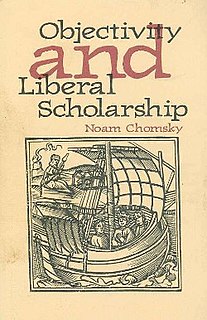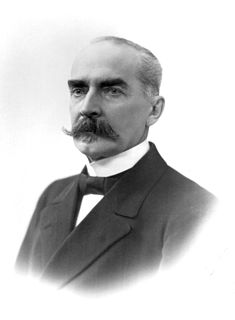 W
WAngry Asian Man is an Internet blog founded in 2001 by Phil Yu. The blog focuses on Asian American news, media, and politics. The Washington Post calls Angry Asian Man "a daily must-read for the media-savvy, socially conscious, pop-cultured Asian American." An accompanying podcast, entitled Sound and Fury: The Angry Asian Podcast, was launched in May 2012 and features interviews with Asian Americans.
 W
WAssisted reproductive technology (ART) includes medical procedures used primarily to address infertility. This subject involves procedures such as in vitro fertilization (IVF), intracytoplasmic sperm injection (ICSI), cryopreservation of gametes or embryos, and/or the use of fertility medication. When used to address infertility, ART may also be referred to as fertility treatment. ART mainly belongs to the field of reproductive endocrinology and infertility. Some forms of ART may be used with regard to fertile couples for genetic purpose. ART may also be used in surrogacy arrangements, although not all surrogacy arrangements involve ART.
 W
WSir Isaiah Berlin was a Latvian-born British social and political theorist, philosopher, and historian of ideas. Although he became increasingly averse to writing for publication, his improvised lectures and talks were sometimes recorded and transcribed, and many of his spoken words were converted into published essays and books, both by himself and by others, especially his principal editor from 1974, Henry Hardy.
 W
WThe Democratic Paradox is a collection of essays by the Belgian political theorist Chantal Mouffe, published in 2000 by Verso Books. The essays offer further discussion of the concept of radical democracy that Mouffe explored in Hegemony and Socialist Strategy, co-authored by Ernesto Laclau. In this collection, Mouffe deals with the specific conflicts between the post-Marxist democratic theory that she and Laclau theorized in Hegemony and Socialist Strategy and the competing democratic theories proposed by Jürgen Habermas and John Rawls. Verso's UK blog characterizes The Democratic Paradox as Mouffe's most accessible review of her perspectives on radical democracy.
 W
WEmbedded liberalism is a term for the global economic system and the associated international political orientation as they existed from the end of World War II to the 1970s. The system was set up to support a combination of free trade with the freedom for states to enhance their provision of welfare and to regulate their economies to reduce unemployment. The term was first used by the American political scientist John Ruggie in 1982.
 W
WFrente Despertar is a political coalition in Argentina. It participated in the 2019 general election, formed by Unite for Freedom and Dignity, the Union of the Democratic Centre, the Libertarian Party and the Democratic Party.
 W
WHigher Superstition: The Academic Left and Its Quarrels with Science is a 1994 book about the philosophy of science by the biologist Paul R. Gross and the mathematician Norman Levitt.
 W
W"A Man's a Man for A' That", also known as "Is There for Honest Poverty" or "For a' That and a' That", is a 1795 song by Robert Burns, written in Scots and English, famous for its expression of egalitarian ideas of society, which may be seen as expressing the ideas of republicanism that arose in the 18th century.
 W
WLiberal Kemalism is a converge between Kemalism, the founding ideology of the Republic of Turkey, and the idea of liberalism, which is based on liberty. It is a liberal idea in general, and the ideology it is closest to is classical liberalism. It was created by Ahmet Ağaoğlu, who was previously a nationalist person, in the 1920s or 1930s. Most liberal Kemalists support ideas such as secularism, republicanism, reformism with cultural liberalism.
 W
WLiberté, égalité, fraternité, French for "liberty, equality, fraternity", is the national motto of France and the Republic of Haiti, and is an example of a tripartite motto. Although it finds its origins in the French Revolution, it was then only one motto among others and was not institutionalized until the Third Republic at the end of the 19th century. Debates concerning the compatibility and order of the three terms began at the same time as the Revolution. It is also the motto of the Grand Orient and the Grande Loge de France.
 W
WJohann Jakob Moser was a German jurist, publicist and researcher, whose work earned him the title "The Father of German Constitutional Law" and whose political commitment to the principles of Liberalism caused him to lose academic positions and spend years as a political prisoner.
 W
WMuscular liberalism is a form of liberalism advocated by former British Prime Minister David Cameron that describes his policy towards state multiculturalism.
 W
WMutual liberty is an idea first developed by Alexis de Tocqueville in his 1835 work Democracy in America. In effect, Tocqueville was referring to the general nature of American society during the 19th century. It appeared to him, at least on the surface, that every citizen in the United States had the opportunity to participate in the civic activities of the country. Another way to look at mutual liberty is by accounting for the collective free wills of every rational being in a community.
 W
W"Objectivity and Liberal Scholarship" is an essay by the American academic Noam Chomsky. It was first published as part of Chomsky's American Power and the New Mandarins. Parts of the essay were delivered as a lecture at New York University in March 1968, as part of Albert Schweitzer Lecture Series. The first third of the essay, "The Menace of Liberal Scholarship" by Noam Chomsky in The New York Review of Books, January 2, 1969, was taken "almost verbatim" from this essay.
 W
WA parliamentary republic is a republic that operates under a parliamentary system of government where the executive branch derives its legitimacy from and is accountable to the legislature. There are a number of variations of parliamentary republics. Most have a clear differentiation between the head of government and the head of state, with the head of government holding real power, much like constitutional monarchies. Some have combined the roles of head of state and head of government, much like presidential systems, but with a dependency upon parliamentary power.
 W
WA parliamentary system or parliamentary democracy is a system of democratic governance of a state where the executive derives its democratic legitimacy from its ability to command the support ("confidence") of the legislature, typically a parliament, to which it is accountable. In a parliamentary system, the head of state is usually a person distinct from the head of government. This is in contrast to a presidential system, where the head of state often is also the head of government and, most importantly, where the executive does not derive its democratic legitimacy from the legislature.
 W
WRegressive left is a pejorative term for a branch of left-wing politics that is accused of being accepting of or sympathetic to views that conflict with liberal principles, especially tolerating Islamism.
 W
WJean-Jacques Rousseau was a Genevan philosopher, writer, and composer. His political philosophy influenced the progress of the Enlightenment throughout Europe, as well as aspects of the French Revolution and the development of modern political, economic, and educational thought.
 W
WSocial Darwinism refers to various societal practices around the world and defined by scholars in Western Europe and North America in the 1870s that applied biological concepts of natural selection and survival of the fittest to sociology, economics and politics. Social Darwinism posits that the strong see their wealth and power increase while the weak see their wealth and power decrease. Various social Darwinist schools of thought differ on which groups of people are the strong and which are the weak, and also differ on the precise mechanisms that reward strength and punish weakness. Many such views stress competition between individuals in laissez-faire capitalism, while others, emphasizing struggle between national or racial groups, support authoritarianism, eugenics, racism, imperialism and/or fascism. The ideology of social Darwinism inspired the perpetrators of genocides including the Armenian genocide.
 W
WThe Spanish confiscation was the Spanish government's seizure and sale of property, including from the Catholic Church, from the late 18th century to the early 20th century. It was a long historical, economic, and social process beginning with the so-called "Confiscation of Godoy" in 1798—although there was an earlier precedent during the reign of Charles III of Spain—and ending on 16 December 1924.
 W
WBertrando Spaventa was a leading Italian philosopher of the 19th century whose ideas had an important influence on the changes that took place during the unification of Italy and on philosophical thought in the 20th century.
 W
WKaarlo Juho Ståhlberg was a Finnish jurist and academic, which was one of the most important pioneers of republicanism in the country. He was the first President of Finland (1919–1925) and a liberal nationalist.
 W
WA victimless crime is an illegal act that typically either directly involves only the perpetrator or occurs between consenting adults. Because it is consensual in nature, whether there involves a victim is a matter of debate. Definitions of victimless crimes vary in different parts of the world and different law systems, but usually include possession of any illegal contraband, recreational drug use, prostitution and prohibited sexual behavior between consenting adults, assisted suicide, and smuggling among other similar infractions.